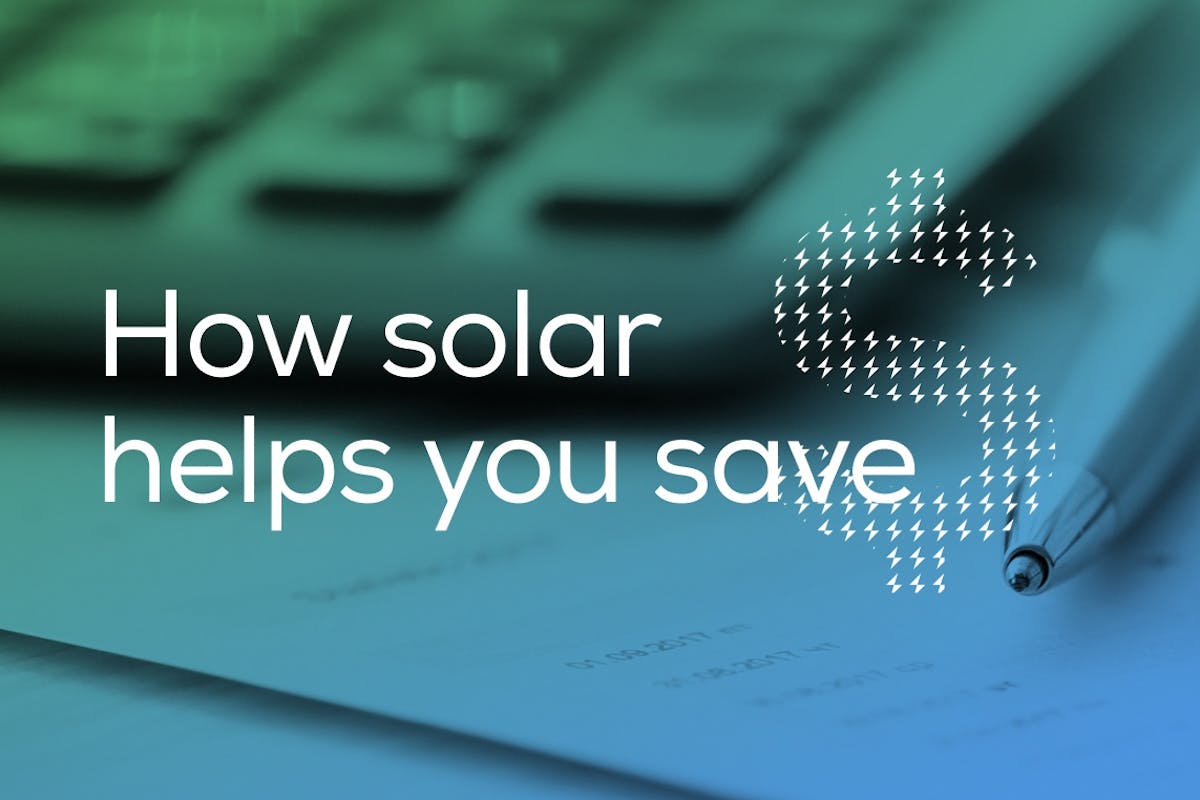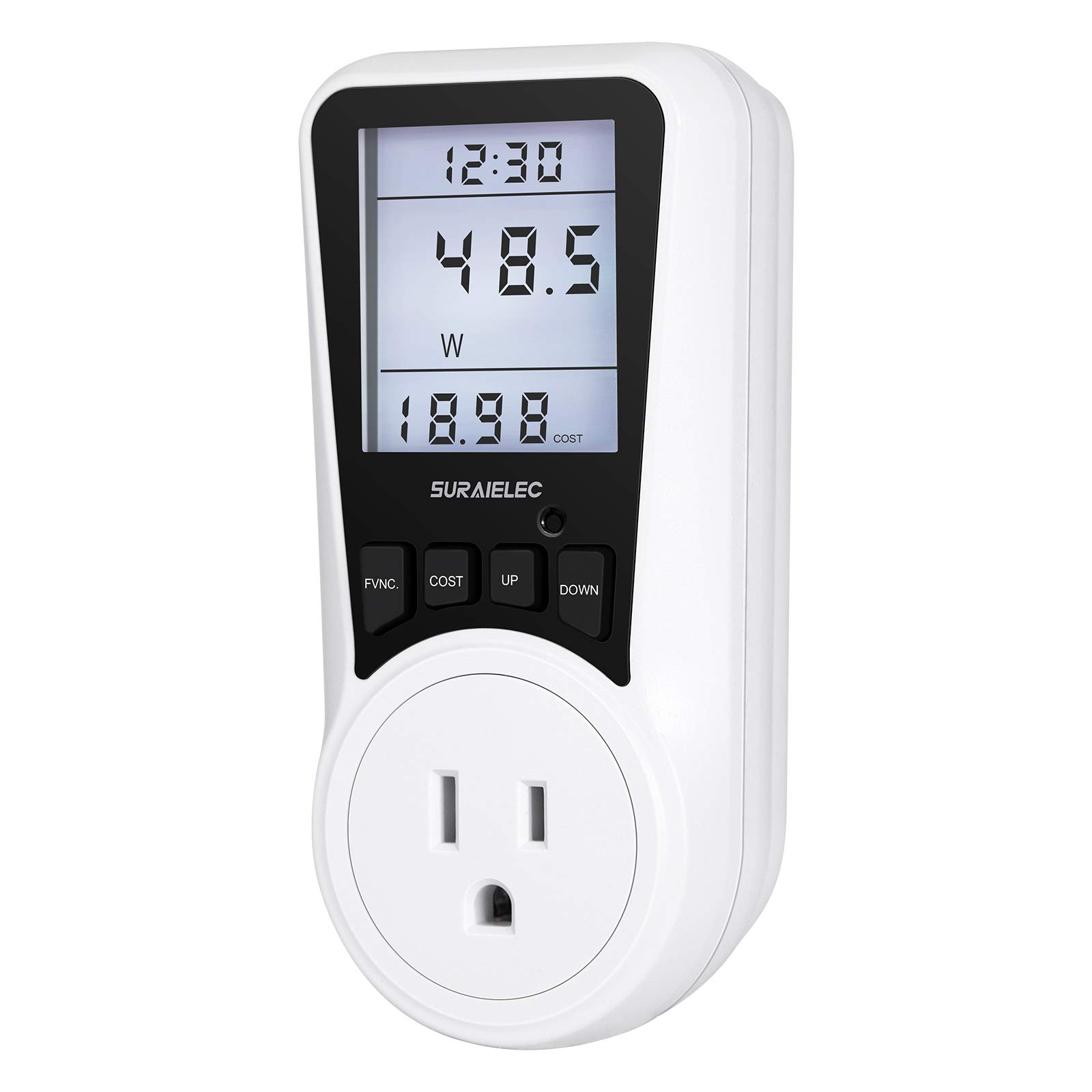Looking to calculate the kWh usage of a water heater? Simply follow these three steps to accurately determine the electricity consumption: 1) Determine the power of the water heater, which is usually specified on the appliance or in the product manual.
2) Multiply the power by the number of hours the water heater operates each day. 3) Divide the result by 1000 to obtain the kWh usage. By using this method, you can easily calculate the energy consumption of your electric water heater.

Credit: palmetto.com
Unveiling The Water Heater Kwh Calculator
Unveiling the Water Heater Kwh Calculator, a powerful tool to determine the energy consumption of your electric water heater. Easily calculate the kWh usage and find out how much electricity your water heater consumes, helping you make informed decisions about energy efficiency.
Importance Of Efficient Water Heating
Efficient water heating plays a crucial role in both energy conservation and cost savings. By optimizing the energy usage of your water heater, you can reduce your environmental impact and lower your monthly bills. With the increasing focus on sustainability and the rising costs of energy, it has become essential to explore effective methods of managing water heating expenses.
One way to achieve efficient water heating is by calculating the kWh (kilowatt-hour) usage of your water heater. This enables you to track and analyze the energy consumption of your heating system, allowing you to make informed decisions for energy conservation.
Behind The Scenes Of The Calculator
Have you ever wondered how the Water Heater Kwh Calculator works? Let’s take a peek behind the scenes.
The Water Heater Kwh Calculator uses a sophisticated algorithm to estimate the kWh usage of your specific water heater. It takes into account various factors such as the heating efficiency, capacity, and usage patterns to provide you with accurate results. By considering these factors, the calculator helps you gauge the energy consumed by your water heater on a daily, monthly, or yearly basis.
This powerful tool empowers you to understand the energy consumption of your water heater and make informed decisions to optimize its usage. Whether you are considering upgrading to a more energy-efficient model or implementing energy-saving techniques, the Water Heater Kwh Calculator equips you with the necessary insights for making efficient choices.
How To Use The Water Heater Kwh Calculator?
The Water Heater Kwh Calculator is designed to be user-friendly and accessible even for those with limited technical knowledge. All you need is some basic information about your water heater to input into the calculator. Here’s a step-by-step guide:
- Identify the wattage or power rating of your water heater. You can find this information in the user manual or on the product label.
- Determine the average daily usage of your water heater in hours. This can be an estimate based on your typical usage patterns or an actual measurement using a timer.
- Enter the above information into the Water Heater Kwh Calculator.
- Click on the “Calculate” button to generate the estimated kWh usage of your water heater.
With just a few simple steps, you can gain valuable insights into the energy consumption of your water heater and take proactive measures to improve its efficiency.
Water Heater Kwh Calculator In Action
When it comes to understanding the energy consumption of your water heater, the Water Heater Kwh Calculator is a valuable tool. With this calculator, you can easily determine how many kilowatt-hours (kWh) your water heater uses, helping you make informed decisions about energy usage and potential cost savings. Let’s take a closer look at how this calculator works and how you can use it to your advantage.
Entering Your Water Heater Specs
Entering your water heater specifications into the calculator is the first step towards understanding its energy consumption. Whether you have an electric, gas, or tankless water heater, simply input the necessary information to get accurate results. Start by providing the power rating of your water heater, which is typically measured in watts or kilowatts. Next, enter the average duration of each water heating cycle, also known as the run time. Finally, input the number of cycles per day, indicating how many times your water heater operates within a 24-hour period.
Understanding The Results
Once you’ve entered all the required specifications, the Water Heater Kwh Calculator will generate the results you need to understand your water heater’s energy consumption. The calculator will display the total energy usage in kilowatt-hours (kWh) per day, month, and year. This breakdown allows you to assess the impact of your water heater on your energy bills over time. Additionally, the calculator may provide useful insights, such as the cost per month or year based on your local electricity rates.
By understanding the results provided by the Water Heater Kwh Calculator, you can make informed decisions about your water heater usage. For example, if you notice that your water heater’s energy consumption is significantly higher than expected, you may consider adjusting its settings or exploring more energy-efficient options. With the help of this calculator, you have the power to optimize your water heater’s performance and potentially save on your energy bills.
Strategies For Energy And Cost Reduction
Cut down your energy usage and costs with the Water Heater Kwh Calculator. Easily calculate how many kWh your water heater consumes and discover ways to save on energy with this helpful tool.
Optimize Water Heater Use
One of the key strategies for reducing energy consumption and costs is to optimize the use of your water heater. By implementing a few simple changes in your daily routine, you can significantly reduce the amount of energy your water heater consumes. Here are some effective tips:
- Lower the temperature: Adjusting the temperature setting of your water heater can have a big impact on energy consumption. Setting it to 120°F (49°C) instead of the standard 140°F (60°C) can help you save energy without sacrificing comfort. Remember, each 10°F (5.5°C) reduction in water temperature can result in energy savings of 3-5%.
- Insulate your water heater: Properly insulating your water heater can prevent heat loss, which means the water will stay hot longer, reducing the need for reheating. Adding an insulation blanket can be a cost-effective solution to improve your water heater’s efficiency.
- Time your water usage: Be mindful of when you use hot water throughout the day. Taking showers, doing laundry, and running the dishwasher during off-peak hours can help you take advantage of lower electricity rates. Some utility companies even offer time-of-use plans that incentivize energy consumption during specific periods.
Regular Maintenance Tips, Ensuring
Maintaining your water heater regularly is essential for optimal performance and efficiency. Follow these maintenance tips to ensure your water heater operates at its best:
- Flush the tank: Over time, sediment can build up inside the tank, reducing its efficiency. To prevent this, flush the tank annually to remove any sediment and mineral deposits. This not only helps your water heater operate more efficiently but also extends its lifespan.
- Check for leaks: Inspect your water heater periodically for any leaks or drips. Addressing even minor leaks promptly can prevent significant damage and save on water and energy costs.
- Insulate hot water pipes: Just like insulating your water heater, insulating the hot water pipes can minimize heat loss during distribution. This ensures that the hot water stays hotter for longer, reducing the need for frequent reheating.
By implementing these strategies for energy and cost reduction, you can make your water heater more efficient and save money on your energy bills. Always remember to consult your water heater’s manufacturer guidelines and seek professional assistance if required for any maintenance tasks.
Impactful Water Heater Choices
Make impactful choices for your water heater with the Water Heater Kwh Calculator. Easily calculate the energy consumption of your electric water heater and make informed decisions about energy usage and cost. Upgrade your water heating system and save money in the long run.
Types Of Water Heaters
When it comes to selecting a water heater, there are several types to choose from, each with its own benefits and drawbacks. Understanding the different options can help you make an informed decision.
Here are the most common types of water heaters:
- Gas Water Heaters: These water heaters use natural gas or propane to heat the water. They are known for their fast recovery time and high heating capacity. Gas water heaters are a popular choice for larger households that require a significant amount of hot water.
- Electric Water Heaters: Electric water heaters use electricity to heat the water. They are generally more energy-efficient than gas water heaters and have a lower upfront cost. However, they may have a slower recovery time compared to gas water heaters.
- Solar Water Heaters: Solar water heaters use energy from the sun to heat the water. They are an eco-friendly option that can help reduce your carbon footprint and save on energy costs. Solar water heaters are ideal for areas with ample sunlight and can be a cost-effective choice in the long run.
Efficiency Of Water Heaters
Efficiency is an important factor to consider when choosing a water heater. A more efficient water heater can not only reduce your energy consumption but also save you money in the long run. Here are some efficient options to consider:
- Tankless Water Heaters: Tankless or on-demand water heaters heat the water directly as it flows through the unit. This eliminates the need for a storage tank, reducing standby energy losses. Tankless water heaters are highly efficient and can deliver a continuous supply of hot water on demand. However, they have a higher upfront cost.
- Heat Pump Water Heaters: Heat pump water heaters work by transferring heat from the air or ground to heat the water. They are highly efficient and can save up to 50% more energy compared to traditional electric water heaters. Heat pump water heaters are especially effective in moderate climates where the surrounding air or ground temperature remains relatively stable.
By considering these impactful water heater choices and understanding the types of water heaters and their efficiency levels, you can make a decision that suits your needs and helps you save both energy and money in the long run.
Advanced Tips For Energy Conservation
When it comes to energy conservation, knowing how to make the most of your water heater’s kWh consumption can have a significant impact on your energy bills. In this section, we’ll explore advanced tips and techniques that can help you conserve energy and reduce your carbon footprint. From smart thermostats and timers to insulation and temperature settings, these strategies can maximize your water heater’s efficiency and save you money in the long run.
Smart Thermostats And Timers
One of the most effective ways to optimize your water heater’s energy consumption is by investing in a smart thermostat or timer. These devices allow you to program your water heater to operate only when needed, reducing standby heat loss and unnecessary energy usage. With a smart thermostat, you can easily adjust temperature settings and schedules from your smartphone, ensuring hot water is readily available when you need it, and minimizing energy waste during periods of low demand.
Insulation And Temperature Settings
Proper insulation and temperature settings are key factors in optimizing the energy efficiency of your water heater. Insulating the water heater tank and hot water pipes helps retain heat, reducing the need for the water heater to work harder to maintain desired temperatures. Additionally, lowering the thermostat temperature can significantly reduce energy consumption. According to the Department of Energy, every 10°F reduction in water heater temperature can save you 3-5% on energy costs. Just be sure to keep the temperature at a safe level to prevent bacterial growth.
Furthermore, regularly checking for leaks in your hot water pipes and repairing them promptly can also contribute to energy conservation. Leaky pipes not only waste water but also increase the workload on your water heater, leading to higher energy consumption.
- Invest in a smart thermostat or timer to schedule your water heater’s operation efficiently.
- Insulate your water heater tank and hot water pipes to reduce heat loss.
- Lower the thermostat temperature to save energy while ensuring safety.
- Regularly check for and repair any leaks in your hot water pipes.
By implementing these advanced tips and techniques, you can maximize the energy efficiency of your water heater and minimize your environmental impact. Not only will you save money on your energy bills, but you will also contribute to a more sustainable future.
Beyond The Calculator
Calculating the kWh usage of your water heater is a great way to understand your energy consumption and make informed decisions about efficiency. However, there are other considerations beyond just the numbers on the calculator. By taking a holistic approach to water heating, you can optimize your energy usage and save even more on your utility bills. Let’s explore some of these considerations in more detail.
Other Considerations For Saving On Water Heating
1. Insulation: Proper insulation of your water heater can have a significant impact on its energy efficiency. Insulating the tank and pipes can help to minimize heat loss, ensuring that less energy is required to keep the water hot. Consider adding insulation to your water heater to reduce energy waste and improve overall efficiency.
2. Temperature settings: Most water heaters come with adjustable temperature settings. Lowering the temperature by a few degrees can result in substantial energy savings. According to the U.S. Department of Energy, lowering the temperature by just 10 degrees Fahrenheit can save up to 5% on energy costs. Check your water heater’s manual to find out how to adjust the temperature settings.
3. Efficient fixtures: Upgrading to low-flow faucets and showerheads can help reduce both your water consumption and the energy required to heat that water. These fixtures use less water without sacrificing performance, resulting in significant energy savings over time. Consider replacing old fixtures with more efficient options to maximize your energy efficiency.
4. Time-of-use rates: Check if your utility provider offers time-of-use rates, where electricity costs vary based on the time of day. By using your water heater during off-peak hours when electricity rates are lower, you can save on your energy bills. It’s worth reaching out to your utility provider to see if this option is available in your area.
When To Replace Your Water Heater
Knowing when to replace your water heater is essential for maintaining energy efficiency. While there is no set timeline for replacement, there are certain signs to look out for:
- Age: Water heaters typically have a lifespan of about 8 to 12 years. If your water heater is approaching or exceeding this age range, it may be time to consider a replacement.
- Efficiency: Older water heaters may not be as energy-efficient as newer models. If your utility bills have been consistently high, it could be a sign that your water heater is no longer operating efficiently.
- Leakage or rust: If you notice any leaks or signs of rust on your water heater, it’s a clear indication that there’s a problem. In such cases, it’s best to have a professional inspect the unit and determine if a replacement is necessary.
By staying mindful of these factors and regularly assessing the state of your water heater, you can ensure that you’re not wasting energy or money on an inefficient system.
Frequently Asked Questions Of Water Heater Kwh Calculator
How Many Kwh Does A Water Heater Use?
A water heater typically uses around X kWh of energy. Calculate water heater kWh to estimate energy consumption. (The exact usage may vary depending on factors such as the size and efficiency of the water heater. )
How Many Kwh Does It Take To Heat Hot Water?
On average, a hot water heater consumes approximately 15 to 30 kWh of energy to heat water. The exact amount depends on the size and type of the water heater, as well as the desired temperature of the water.
How Many Kw Is A 50 Gallon Water Heater?
A 50 gallon water heater typically has a power rating of about 4-5 kW.
How Do You Calculate Kw Of A Heater?
To calculate the kW of a heater, divide the energy consumption in kilowatt-hours (kWh) by the number of hours the heater is operational. For example, if a heater uses 500 kWh of energy in 50 hours, the calculation would be 500 kWh ÷ 50 hours = 10 kW.
Conclusion
When it comes to determining the energy consumption of your water heater, using a kWh calculator is crucial. By calculating the kWh usage of your water heater, you can make informed decisions about energy efficiency and cost savings. Whether you have an electric, natural gas, or tankless water heater, understanding its energy usage is essential.
With the help of a reliable kWh calculator, you can discover the exact energy consumption of your water heater and explore potential upgrades or adjustments to optimize your energy usage. Start calculating today to save energy and money in the long run.

I am a Water Heater specialist writer and blogger based in the USA & UK. I have been working with Water Heater for six long years. And I give trips on various Water Heater problems and solutions. I have a lot of experience with Water Heater And I share them here

